Let's Talk About Anxiety Disorders
Help raise awareness about anxiety disorders by sharing informational materials based on the latest research. Share science. Share hope. https://go.nih.gov/7jIqf79 #shareNIMH

An official website of the United States government
Here’s how you know
Official websites use .gov
A .gov website belongs to an official government organization in the United States.
Secure .gov websites use HTTPS
A lock ( ) or https:// means you’ve safely connected to the .gov website. Share sensitive information only on official, secure websites.
Transforming the understanding
and treatment of mental illnesses.
Use these resources to raise awareness about anxiety disorders.

Occasional stress and anxiety is a normal part of life. But anxiety disorders involve more than temporary worry or fear. An anxiety disorder is a medical condition that interfere with daily activities such as job performance, schoolwork, and relationships. For more information on anxiety disorders, visit our health topic page or view our brochures.
Help raise awareness about anxiety disorders by sharing information and materials based on the latest research.
Download and share these messages to help spread the word about stress and anxiety. You can copy and paste the text and graphic into a tweet, email, or post. We encourage you to use the hashtag #shareNIMH in your social media posts to connect with people and organizations with similar goals. For more ideas on how to use these resources, visit our help page.
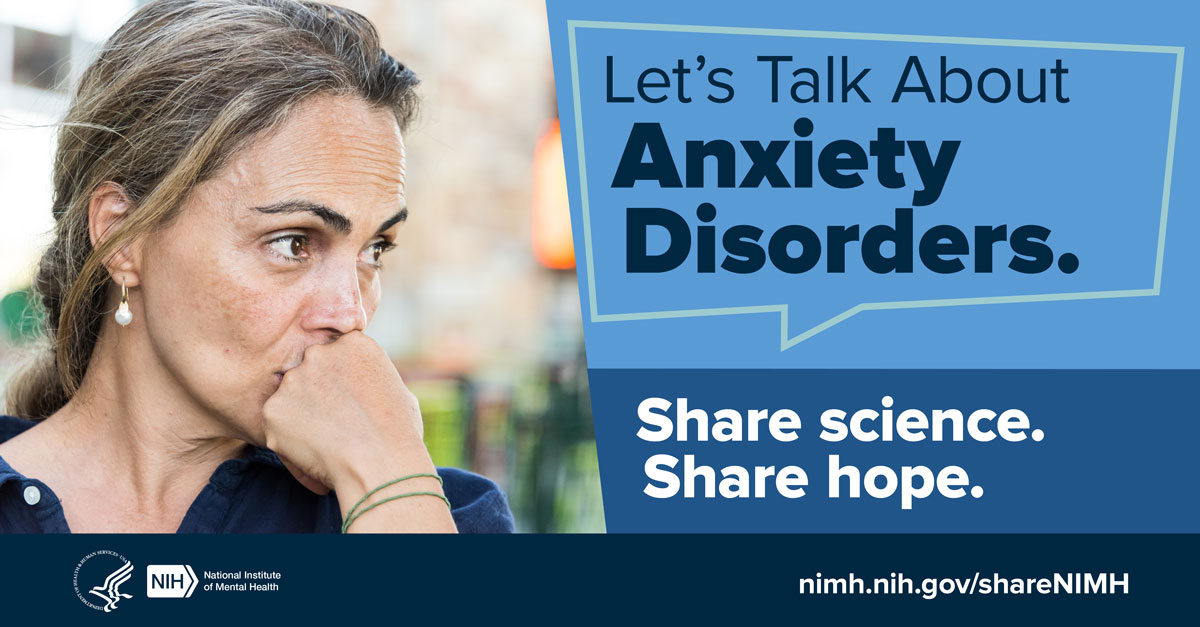
Help raise awareness about anxiety disorders by sharing informational materials based on the latest research. Share science. Share hope. https://go.nih.gov/7jIqf79 #shareNIMH
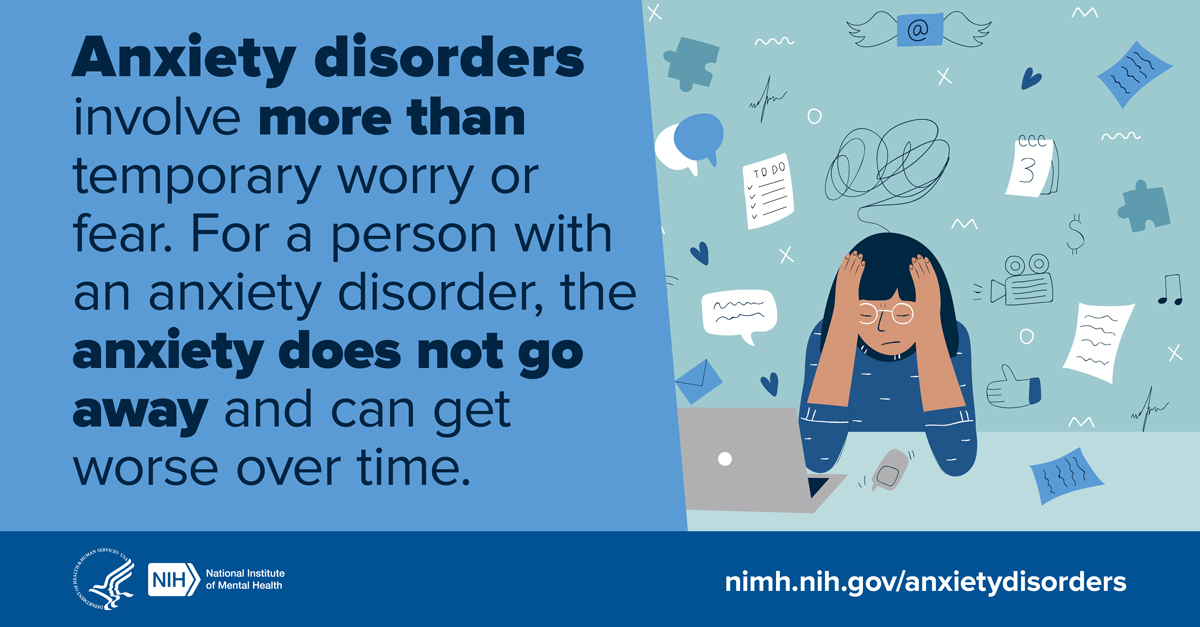
Occasional anxiety is a normal part of life. But people with generalized anxiety disorder (GAD) feel extremely worried or feel nervous about these and other things—even when there is little or no reason to worry about them. Visit https://go.nih.gov/iLcGFYV to learn more. #shareNIMH
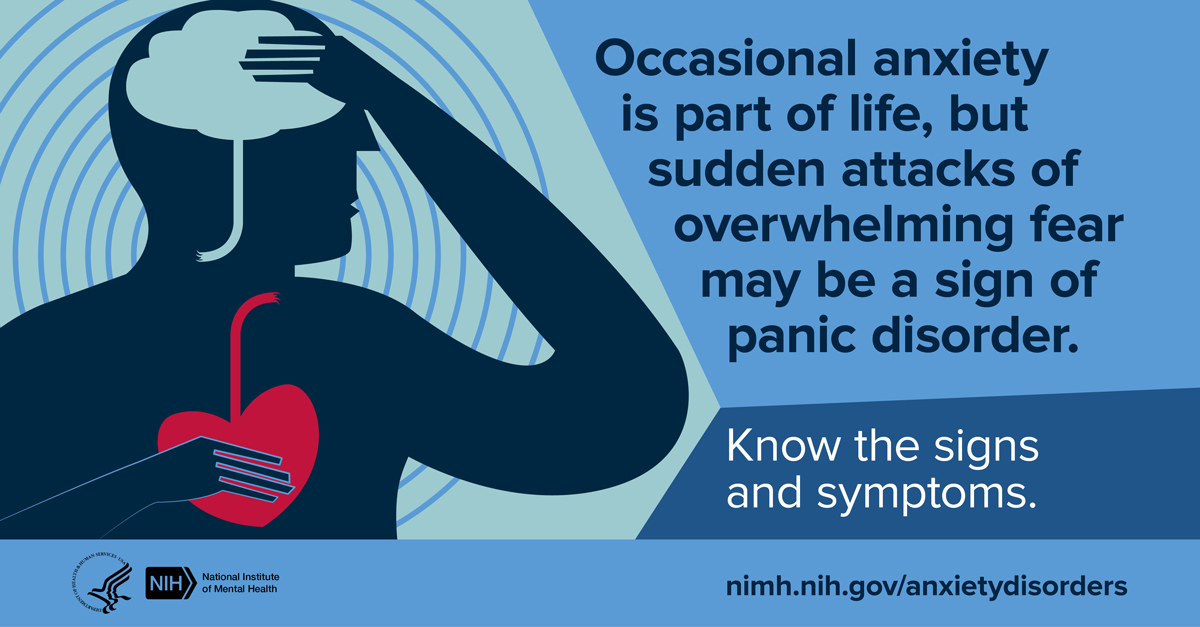
Panic disorder is characterized by recurring, sudden attacks of anxiety and overwhelming fear that last for several minutes. Panic disorder can disrupt daily life, but following a treatment plan can help people manage symptoms. Learn more at https://go.nih.gov/mpxoFzs #shareNIMH
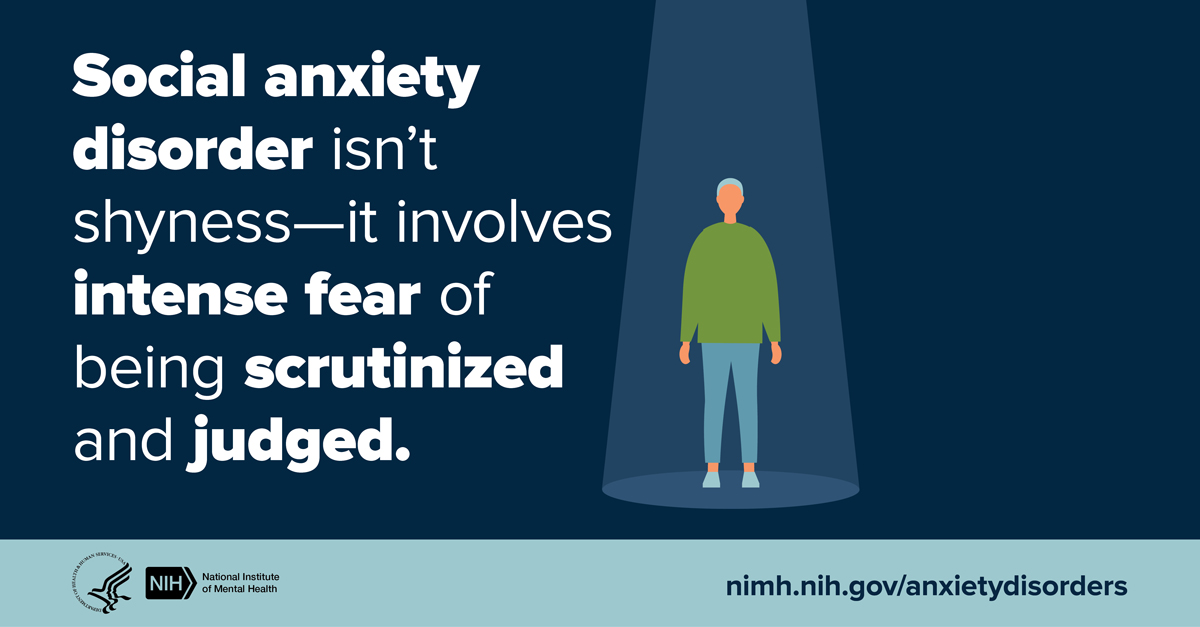
Are you extremely afraid of being judged by others? Are you very self-conscious in everyday social situations? If you’ve felt this way for at least 6 months and these feelings make it hard for you to do everyday tasks, you may have a social anxiety disorder: https://go.nih.gov/bfyYAPT #shareNIMH
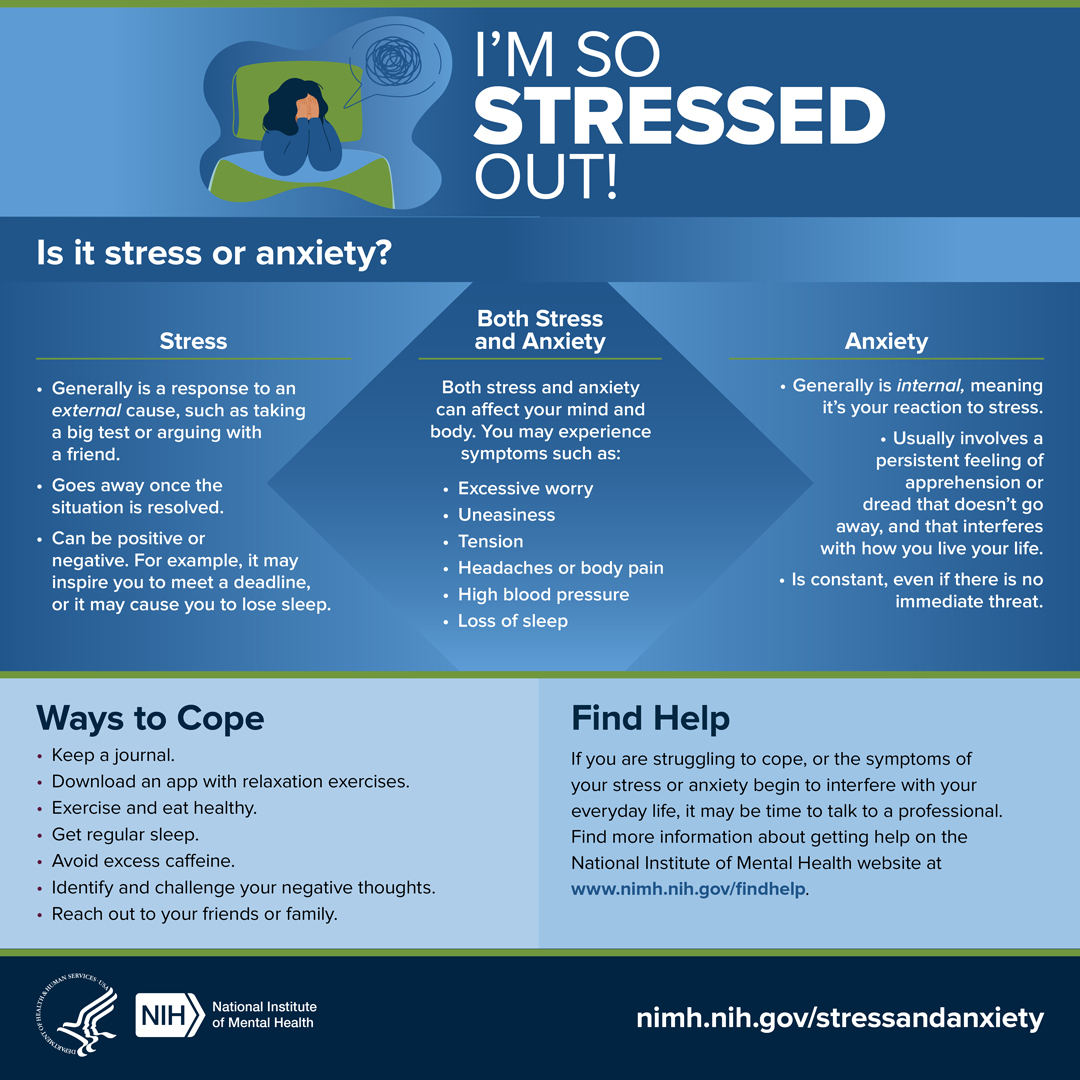
Life can be stressful. If you are struggling to cope, or the symptoms of your stress or anxiety won’t go away, it could affect your health. Learn more at https://go.nih.gov/HcjwFWe . #shareNIMH
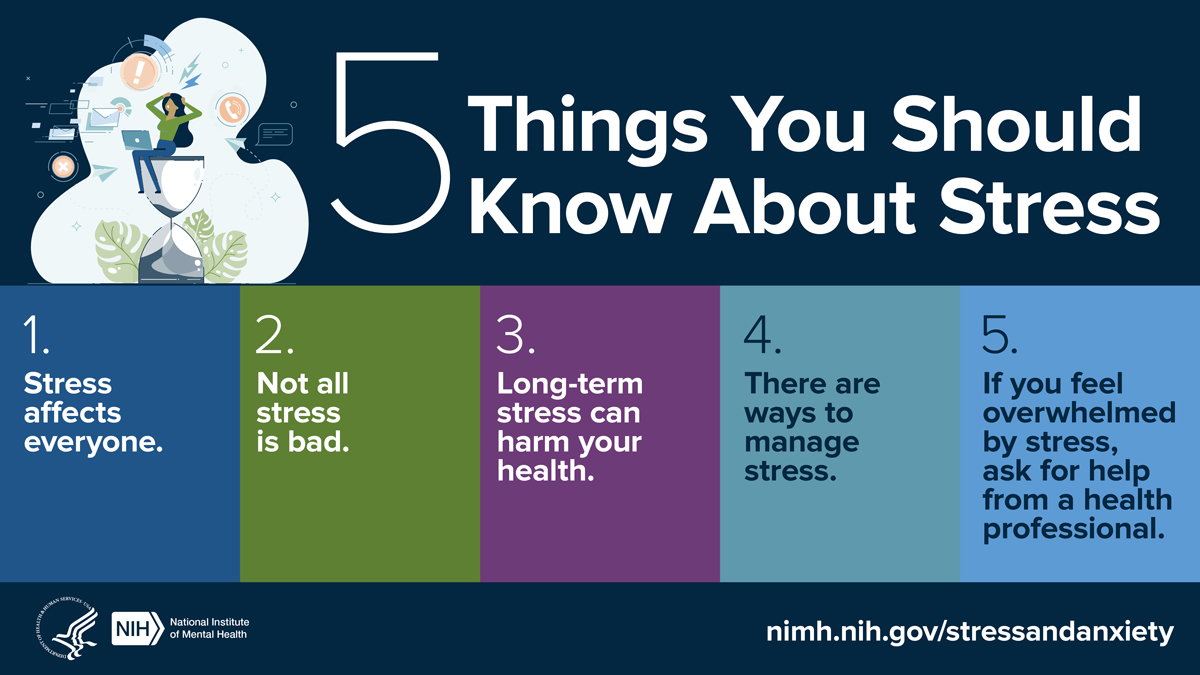
Everyone feels stressed from time to time. It's important to pay attention to how you deal with minor and major stressors, so you know when to seek help. Manage your stress with these tips: https://go.nih.gov/HcjwFWe . #shareNIMH
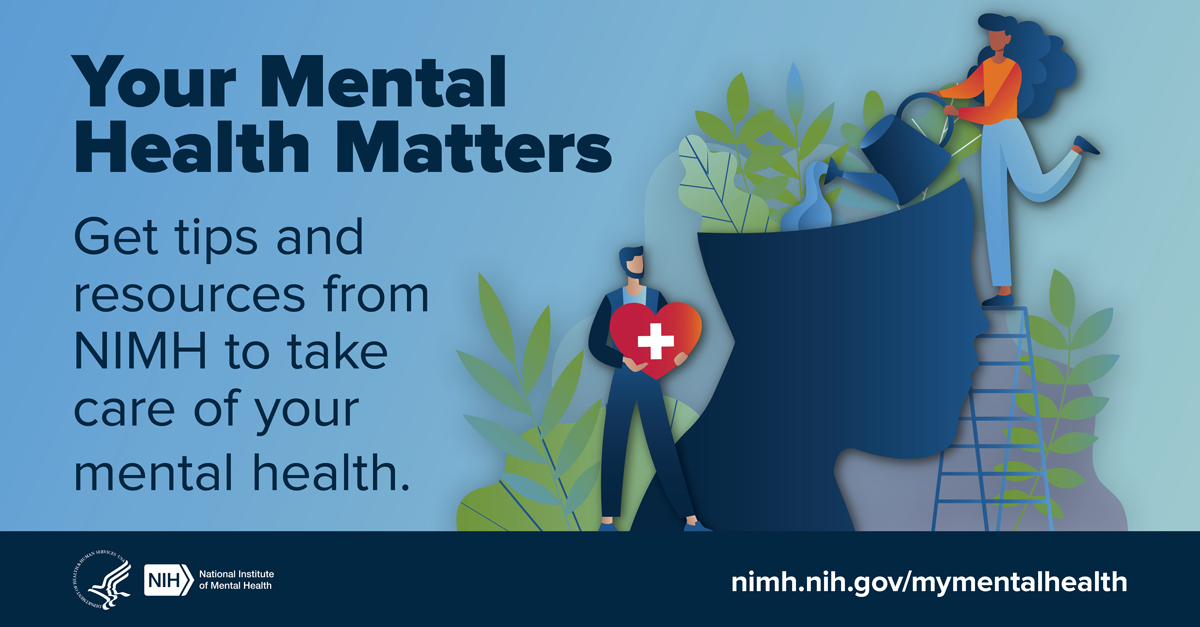
Your mental health matters. Mental health is just as important as physical health. Good mental health helps you cope with stress and can improve your quality of life. Get tips and resources from NIMH to help take care of your mental health. https://go.nih.gov/wwSau0W #shareNIMH
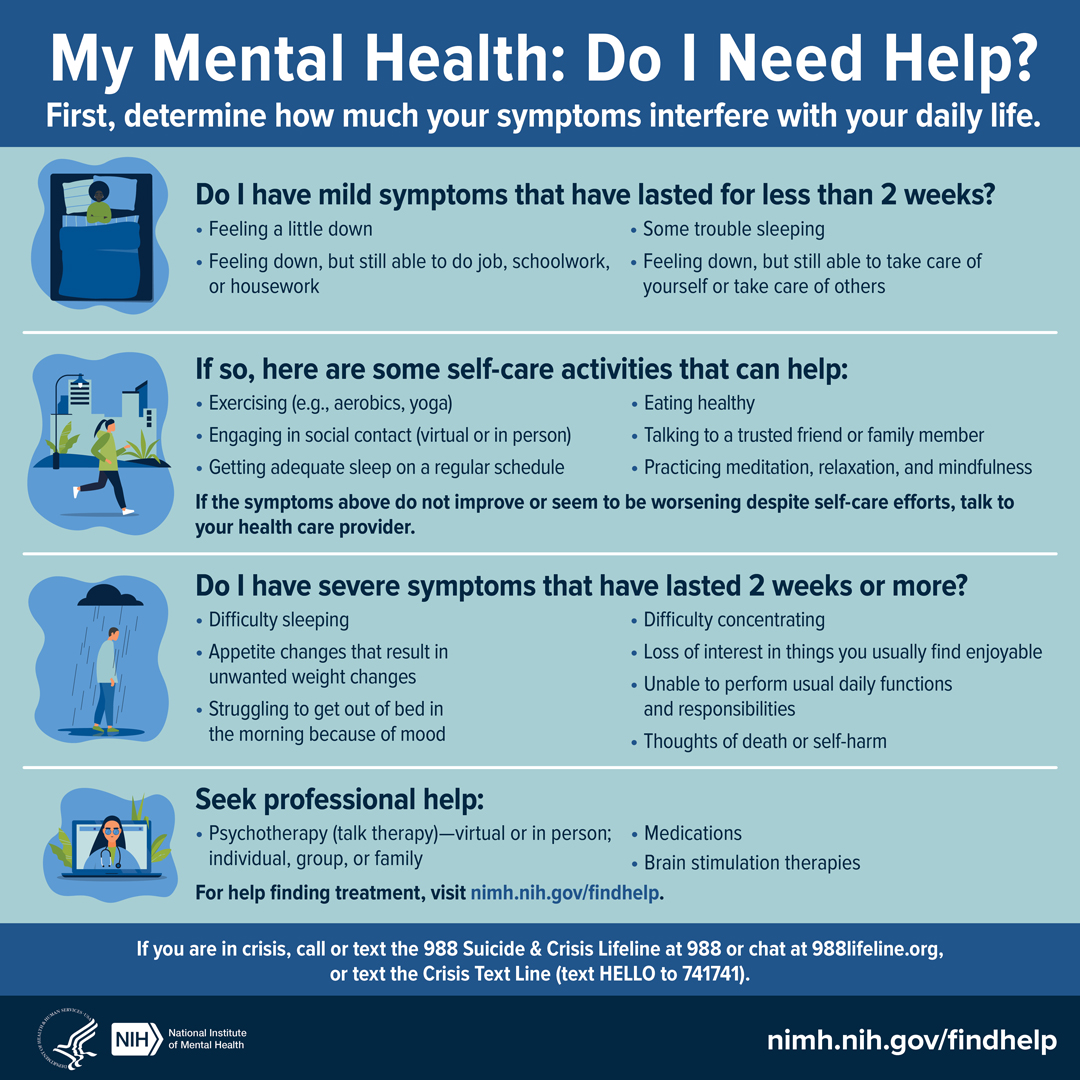
Do you need help with your mental health? If you don't know where to start, this infographic may help guide you. https://go.nih.gov/1VtK7eA #shareNIMH
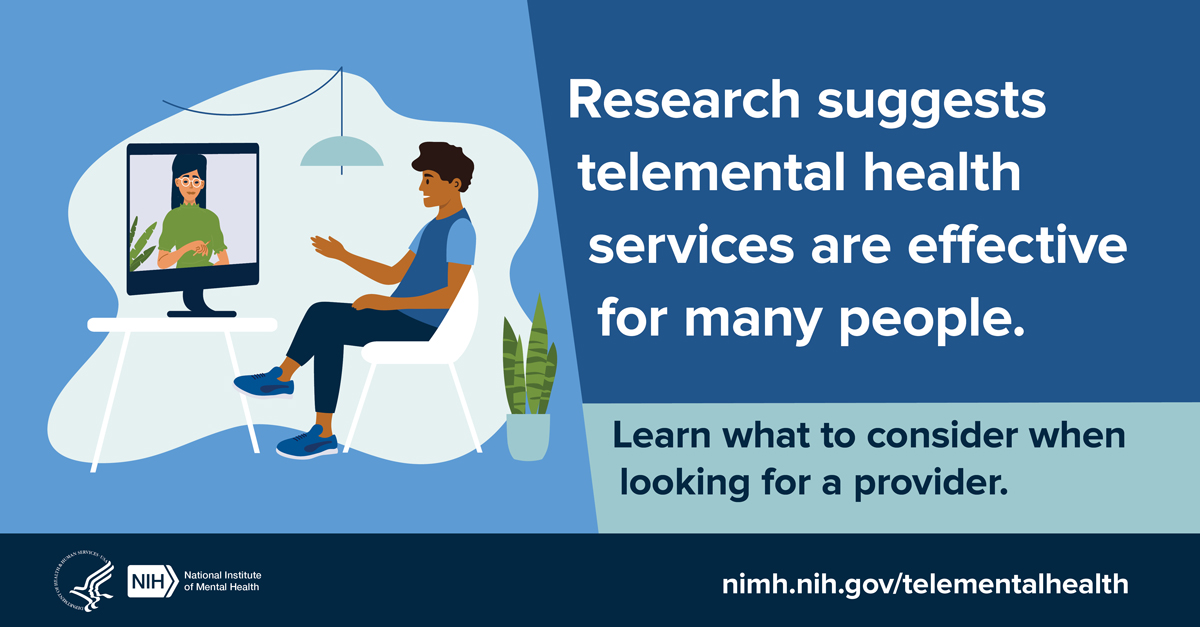
Research suggests that telemental health services can be effective for many people, including, but not limited to those with ADHD, PTSD, depression, and anxiety. Learn about factors to consider when using telemental health. https://go.nih.gov/FldCw5O . #shareNIMH
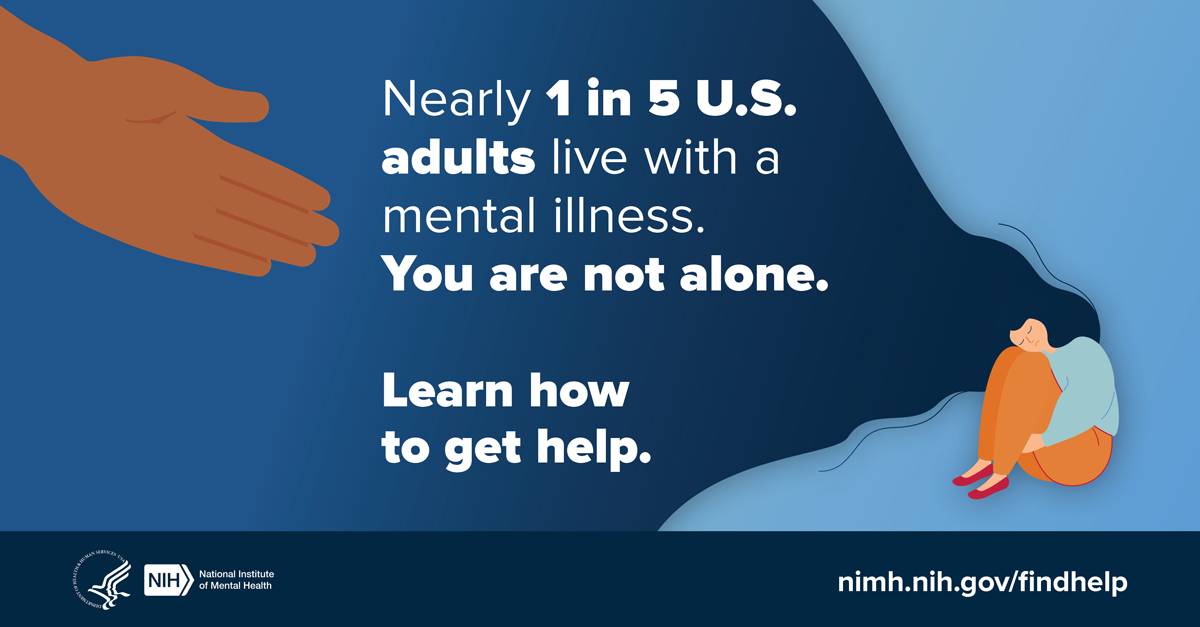
If you or someone you know has a mental illness, is struggling emotionally, or has concerns about their mental health, use these resources to find help for yourself, a friend, or a family member: https://go.nih.gov/Fx6cHCZ . #shareNIMH
Click “Copy link” to copy the video URL and post these videos on social media, or embed them on your website.
Panic Disorder: The Symptoms: Learn about the signs and symptoms of panic disorder.
Mental Health Minute: Anxiety Disorders in Adults: Got 60 seconds? Take a mental health minute to watch this video about anxiety disorders in adults.
GREAT: Learn helpful practices to manage stress and anxiety.
Guided Visualization: Dealing with Stress: Learn how the brain handles stress and practice a guided visualization activity.
Last Reviewed: April 2024